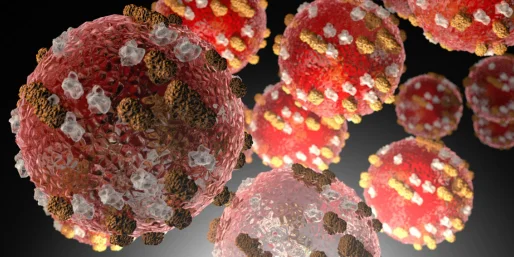Mumps is a contagious viral infection that primarily affects the salivary glands, causing swelling and discomfort around the jaw and cheeks. Spread through respiratory droplets, it can easily transmit via coughing, sneezing, or sharing utensils. While there is no specific cure for mumps, it can cause serious complications, making prevention essential. The measles-mumps-rubella (MMR) vaccine is the most effective safeguard, significantly reducing cases. However, outbreaks still occur, especially in areas with low vaccination rates. Symptoms typically include fever, headache, muscle aches, and fatigue, with recovery usually within two weeks. In rare cases, mumps can lead to complications involving the reproductive organs, pancreas, or brain. Hospitals in Mumbai offer effective mumps treatment to manage symptoms and prevent complications.
What is Mumps?
Mumps is a contagious virus disease that primarily affects the salivary glands and causing to discomfort and swelling. It is easily spread via respiratory droplets resulting caused by coughing and the sneezing. Although there is no definitive treatment for mumps, it can cause serious health problems, making it essential to prevent the spread of mumps. The measles-mumps-rubella (MMR) vaccine is the most effective way to protect against mumps.
How Does Mumps Occur?
- Sneezing or coughing
- Drinks or utensils shared
- Kissing
- Sports activities that are played within close proximity

Mumps happens when the mumps virus is introduced into the body, typically via the respiratory tract. The virus spreads from one person to another person by direct contact with the infected person’s saliva or respiratory secretions. This includes actions such as:
Prior to the introduction of the MMR vaccine prior to the introduction of the MMR vaccine, it was estimated that the U.S. reported around 186,000 cases of mumps per year. While the number of cases has decreased by nearly 90% however, outbreaks continue to occur in particular among people who live in close proximity.
How Common is Mumps?
- Fever
- Headache
- Muscles hurt
- Fatigue
- A loss of appetite
- Testicles that are enlarged, which could reduce the size of the testicular
- Breast tissue or ovaries are inflamed.
- Pancreas-related inflammation (pancreatitis)
- The brain is inflamed (encephalitis)
- Inflammation of the tissues around the spinal cord and brain (meningitis)
- Deafness
- Resting well
- Drinking water is essential.
- Applying cool or warm compresses on glands that have swollen
- Soft foods are more easy to chew
- Using over-the-counter pain relievers to alleviate discomfort
Despite substantial decreases in cases thanks vaccines, the mumps remains evident throughout The United States. Most outbreaks occur in areas with low rates of vaccination or in communities that live close with each other. Although some individuals might suffer from mild symptoms and/or none the possibility of outbreaks remains an issue for public health.
Symptoms
The typical symptom of Mumps is symptoms that are similar to flu. It can also include:
These signs are typically associated with an increase in the size of salivary glands, especially in the ear area, which results in puffy cheeks as well as a swelling of the jaw. The symptoms usually show up within 16 to 18 days after the infection, however they could last anywhere between between 12 and up to.
The majority of people recover fully in less than 2 weeks however, mumps could cause serious problems in rare instances like:
It is crucial to remember that mumps may cause inflammation of reproductive organs, it hasn’t been demonstrated to cause the infertility.
Treatment
There is currently no particular antiviral treatment specifically for the mumps. Treatment is focused on reducing symptoms and assisting in recovery. The recommended treatment includes:




